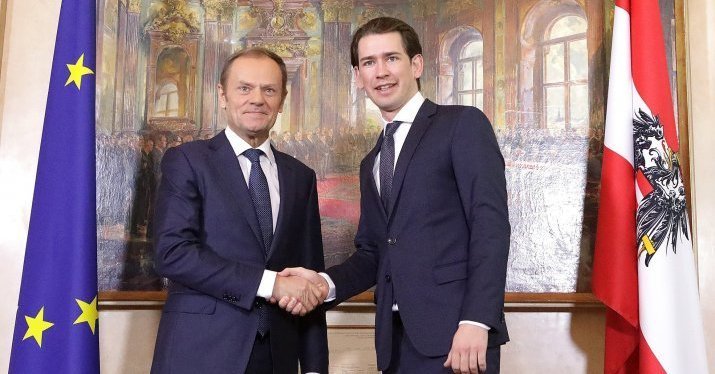1st of July is indeed always a turning point (at least a symbolic one) for the European Union. The Austrian Presidency followed the Bulgarian one. What happened during the six months of the Bulgarian Presidency, led by Boyko Borisov (the Bulgarian Prime Minister) under the mantra of a Europe of “solidarity”?
Bulgarian Presidency: the pending reform of the Istanbul Convention
No fewer than 1500 meetings and events were organised by the departing Presidency. While some topics such as energy efficiency or the rapprochement between the EU and the Balkans advanced successfully (for instance during the Sofia summit on 17 May), another one was left on the sidelines: the Istanbul Convention.
Malin Björk, Swedish MEP from the European United Left (GUE), who initiated the parliamentary debate on this Convention of the Council of Europe, called the Bulgarian boycott of the parliamentary discussions a “cruel, sexist and homophobic attack against women and the LGBT community”. This convention, recently ratified by Greece (18 June) and Croatia (12 June) aims at fighting violence against women, but Bulgaria, just like Slovakia, where the family model remains traditionalist, considered it as a Trojan horse aiming at introducing a “third gender” or same-sex marriage.
Finally, it goes without saying that Boyko Borisov probably teared up while clearing his desk. Despite his promise of more solidarity in Europe, the last events in the Mediterranean proved the contrary.
Sebastian Kurz, Austrian political actor, but soon European
The order in which the countries take over the Presidency is set by the Council of ministers itself. While Boyko Borisov is moving to Sofia, Sebastian Kurz arrives with his slogan “A Europe that protects”. A Europe that protects from migrations, probably. The young Austrian Prime Minister (he’s 31) succeeded in establishing himself on the Austrian political scene in October 2017 after a campaign for the legislative elections focused on migration policy. Barely a year ago, he was a second-rank actor of the coalition government with the social-democrat party (SPÖ), where he was in charge of Foreign Affairs. Now, his position is not only strengthened in Austria beside the extreme right (FPÖ) but also on the European political scene.
To conduct his Presidency of the Council, he doesn’t lack inventiveness or ambitions. Sebastian Kurz did not hesitate (and won’t hesitate) to put Angela Merkel in a difficult position, and criticised her for an overly indulgent migration policy in 2015. The German Chancellor was already weakened in Germany by her Interior minister, the leader of the Bavarian CSU Horst Seehofer, who threatened to resign a couple of days ago.
Retention centres for migrants in Europe
Regarding migration policy, European news were busy last week. The Aquarius was finally received by Spain after being turned away by Italy. A crisis summit on migration issues was organised in Brussels in preparation of the European Council of 28-19 June. A report of the French NGO Cimade denounced a “Europe that closes itself off”. The conclusions of the European summit proposed the creation of immigrant reception centers, but France and Austria refused to have one on their territory. Against a backdrop of European migration crisis, everything leads to believe that this policy won’t be set aside by Vienna. The conservative coalition government, with Sebastian Kurz’ far right, would like to set up retention camps to prevent economic migrants from entering the EU. This worrying proposition was known in all of Europe.
On 5 June, Sebastian Kurz met the liberal Danish Prime Minister Lars Lokke Rasmussen. They discussed an alternative to the European political deadlock regarding immigration, the one of the Dublin Regulation – which sets up the “first country rule”, establishing that the country of arrival is responsible for the examination of the asylum application – and of refugee quotas defined according to the size and GDP of the member state. This bilateral meeting harms multilateralism. The idea to create common centers of reception and expulsion in Europe resulted from their talks. This proposition might be baffling for many, and distances itself from the EU values enacted in the article 2 of the Lisbon Treaty.
The day following this visit, Sebastian Kurz went to Brussels to hand in a 66-page document recording his priorities for the Presidency of the Council. He proposed to set up in EU candidate countries (Albania and Kosovo) retention camps for migrants whose asylum applications were rejected, and these countries could hardly refuse considering the incentive of an accelerated EU accession process. The Austrian leader explained his position to Jean-Claude Juncker, and pointed out that this proposition was phrased by a “restricted circle of European countries”, prepared at the edges of the EU–Balkans summit in Sofia.
It’s for the best if Sebastian Kurz does not consider this project as the priority of his European mandate, because a political reform of the right to asylum is a sine qua non condition in Europe. One shouldn’t forget that the problem lies less in the number of refugees in Europe than in the evident lack of political consensus within the EU. In any case, a deep reform of the Dublin Regulation will have to be a priority, just like the abrogation of the quota system – many member states flouted this distribution system anyway. With this new Presidency, would it be possible to stop the European ostrich-like approach which reached its height when the shameful EU - Turkey agreement was concluded in 2016?



Follow the comments: |
|
